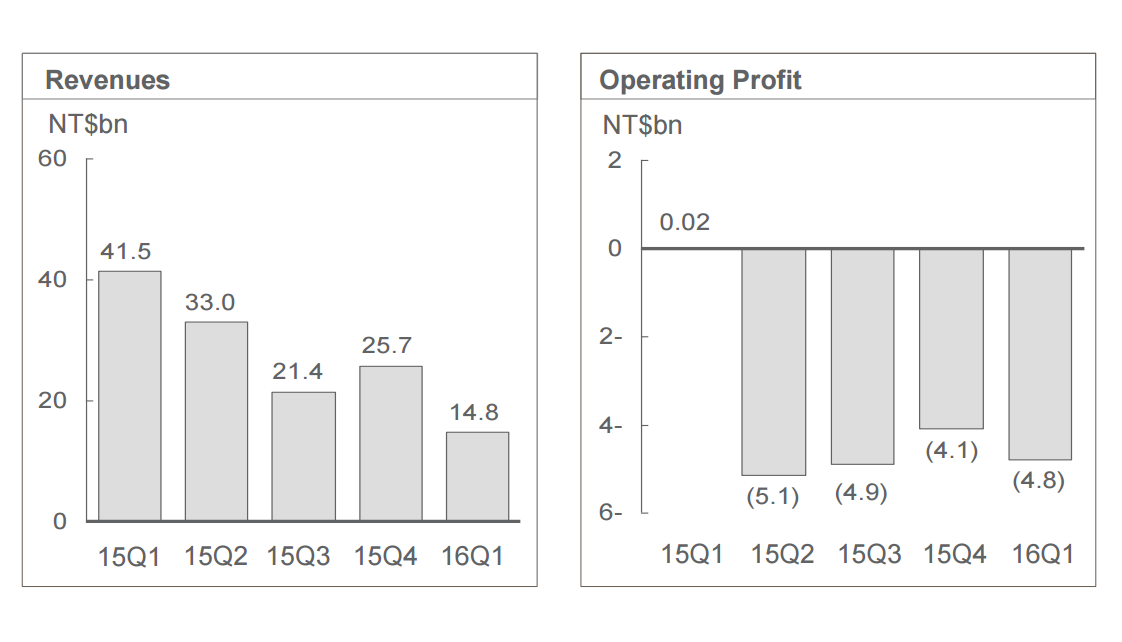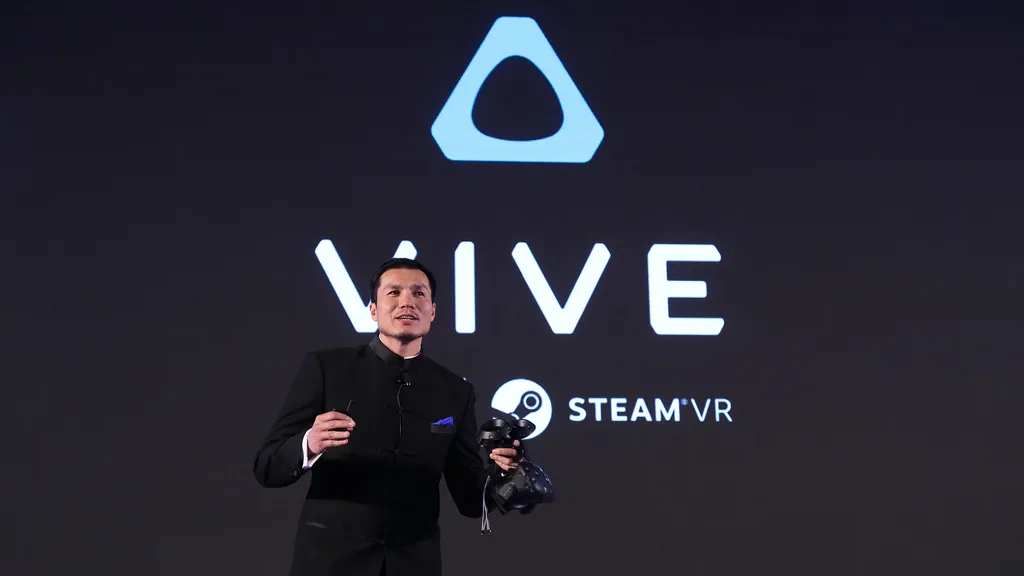Just last week we wrote about the sticky financial situation that HTC has found itself in at the moment. Things aren’t looking any better for the company today.
The Taiwanese smartphone maker has released its Q1 2016 figures today, covering from January to March. The streak of declining quarters continues, with a drop in both revenue and profit compared to Q1 2015. The company reported revenue of NT$14.8 billion (around $45.6 million USD), which is down a massive 64% over the NT$41.5 billion (around $127 million USD) reported this time last year. After tax, the company was left with a quarterly net loss of NT$2.6 billion (around $65 million USD).

In a statement, HTC CEO Cher Wang noted that the buzz around the company’s new VR HMD, the HTC Vive, had provided “a great boost” to the brand. The company’s release also noted that both that kit and its new phone, the HTC M10, had seen “strong launches” in early Q2 and that it anticipated “good momentum” for both as the year progresses.
Speaking to UploadVR, Anshel Sag, Staff Technologist at Moor Insights & Strategy speculated that some of HTC’s costs for this quarter may have come from “ramping up” the production of the Vive. The device went on sale days after the quarter ended on April 5th, so it’s possible the added cost of getting units prepared had an impact. Sag also noted that “the market wide slowdown” of smartphone sales in Q1 2016 would have also taken its toll. With two new products launched in Q2, however, Sag expects “a very different picture” from the next set of results.
Of course, the HTC Vive’s $799 price tag and required computing power is going to hugely limit its sales, but it will still be fascinating to see the impact it makes.
Either way, it’s tough to deny that HTC is struggling in its uphill battle to reignite interest in its smartphone brand. Rumours that the company might be spinning off its VR business will certainly be fuelled by today’s news, too. Of those reports, Sag says that it could mean more funding for Vive, though it would certainly make the company’s relationship with the tech more complicated. He also expressed concerns of how this would reflect on HTC’s business without the “opportunity” of VR being present.
Ultimately, Sag doesn’t think HTC will sell off its VR division “outright”, but there could be “some value to HTC’s shareholders in the long term” if the company spins it off instead. That said, he also reasons that the recently announced accelerator could keep the company from doing this. “I am not entirely sure they would completely spin off the VR division considering their $100 million investment,” he says. “So, the spin off may be more of a structural one than a functional one.”
We couldn’t tell you what HTC will do next, but it goes without saying that it will be crucial to the company’s recovery.


























